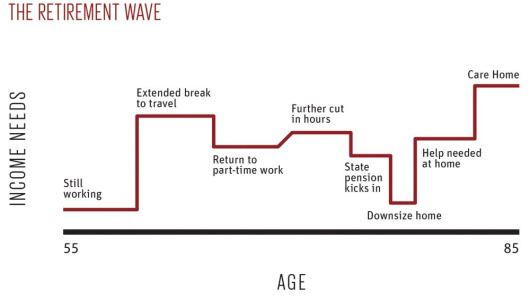
What do political parties deliver in return for donations from the financial-services industry and business more widely?
At a time when the UK is preparing for a general election in a few months’ time, asking this question goes to the heart of what we might expect from a new government once it gets into office.
We know Conservatives have long been a party that has received millions in donations over the past 15 years, including from investment banks, asset management firms, hedge funds, insurers and other financial-services companies and high net-worth individuals linked to them.
At the same time, barring a miracle, there is no way on earth the Tories will win the next election. So, attention switches to the more likely winners from the other team.
There’s no doubt Labour is putting in a massive effort to win over institutions. The Guardian reported earlier this month that senior Labour Party figures – including leader Keir Starmer, shadow chancellor Rachel Reeves, shadow business secretary Jonathan Reynolds and shadow City minister Tulip Siddiq – journeyed up to Edinburgh in December last year for a roundtable meeting with financial providers.
Attendees at the meeting included investment managers Baillie Gifford and Aegon, as well as NatWest. Some of these companies have funded either the Labour Party directly or provided admin support to Labour shadow cabinet ministers.
The roundtable was facilitated by Sovereign Strategy, a lobbying firm that has represented Bloomberg.
Bloomberg itself has punted £150,000 into the Labour Party, since when there have been endless soft-focus audio and TV interviews with Reeves. Last year’s trip to New York offered up a Labour Party video (now next-to-impossible to find on the internet) in which Reeves was pictured admiringly next to all manner of Bloomberg promotional logos.
As for other attendees, the OpenDemocracy media platform has reported that “according to a now-deleted LinkedIn post by [a Sovereign Strategy staffer], Starmer and his ministerial team offered those in attendance an ‘exclusive dive’ into the launch of its financial-services policy”.
A few weeks later, Labour published its financial-services strategy – Financing Growth – described by the not-for-profit advocacy group Positive Money as “a love letter to Big Finance, with much in there that could have been written by the industry itself”. Perhaps because it was: staffers from City management consultancy Oliver Wyman were brought in to help to put it together.
Among its proposals is one to “cut the industry’s ‘regulatory burden’, including by streamlining some ‘excessively procedural rules’ in the Financial Conduct Authority’s 10,000-page regulatory handbook”.
They didn’t talk to people such as Mick McAteer at the Financial Inclusion Centre, a long-time campaigner with decades of experience of representing consumers at UK and EU level, who argues the real problem is that of major gaps in financial regulation, particularly with regards to financial exclusion and discrimination.
Another proposal involves Labour uncritically parroting chancellor Jeremy Hunt’s attempt to push pension funds to increase their risk profiles by investing in unlisted shares to “provide an additional £1,000 a year in pension income for the average earner”. As I wrote a few months ago, that claimed £1,000 annual boost is largely a made-up number.
After its publication in January, Reeves and Siddiq threw a lavish, no-press-allowed reception for 500 top businesspeople in the City of London to thank the industry for its contributions to the report.
Thirty-odd years ago, just before Labour’s election victory in 1997, I remember former chancellor Alistair Darling popping up at financial-services events across the country to reassure audiences that his party’s plans did not involve massive revolutionary change. Yes, it was anodyne and there were few proposals that genuinely caught the eye. But he didn’t sell his soul in the same way as the present opposition has managed to do.
When the next financial scandal hits under Labour’s watch, as it surely will, I wonder whether millions of consumers will feel its prawn-cocktail offensive while in opposition was really worth it.
Nic Cicutti can be contacted at nic@inspiredmoney.co.uk















How many times can Labour sell the same soul?
They were willing to sell it to Super Casino operators, remember? Anyone who understands the casino industry understands that it hires people on low wages and then exports the profits. They suck money out like vampires and in the long run they only increase the misery of the working classes. Labour was up for it though. That was when I knew Labour had lost its soul.
They’ve also sold it to religious sectarians who have no principles in common with any true socialist, quite the opposite where it comes to women’s and gay rights, but who can be relied on to deliver the vote in certain areas on time every time, even if they have to steal it, which they usually do.
Any chance you could publish a full list of these geniuses who are ‘investing’ in Labour? I have this lovely old antique Bridge for sale, in Brooklyn, and I only want $100m for it.
Wow! MM have really hit the bottom of self centred navel gazing – cheap copy to you and me – this time!!
For the last years, Tory Govt.s have overseen the decline of just about all that makes money in this country – though, skillfully helping their nearest and dearest.
Regulation – The FCA has become a buffer to keep the Dark Lords safe. The CiC of the FCA for a long time – now making the BoE a laughing stock – is kept because of feared instabiltiy through change…
The sheer hand wringing/vacillation – HS2, Diesel, no Diesel, Defence, Rail electrification, soft touches to law breakers, Agriculture,….
Their worst arrogance has been the ignoring of below age 40 would be home buyers; and their total hand washing of the lending industry. Too many scandals to list here for brevity!
What have Labour to lose? The Teflon Twins of the last lot rebuilt a lot of what Major had destroyed, and even put new money into schools.
The funny thing is, Starmer has been planning strategy with Brown. The latter who built public services with PFI – this is what has kept, say, the NHS poor by producing 18%+ annual returns upon an essentially Govt. guaranteed deal.
Advisers should embrace a change – this gives many reasons to talk to clients. Labout will, inevitably, expand tax/the language/the reach/who it touches – in these times advice surely becomes more valuable.
Anyway, who knows, maybe we will have ‘Cool Britannia II’… Brown budgeted £4Bn for this… but due to clever daylight landing sods, the figure got to £24Bn+
before he collapsed the balloon!
If anyone wants a daylight deal…why just write in here… I can pull my boots on for one last game!
Gosh John
That was a very long post. I would put it rather more briefly.
The choice in the forthcoming election is akin to asking what you would prefer:
Syphillis or
Sorry last word omitted –
Gohnnoreah.
Stonewall, LGBTXYZ, Woke now everywhere. Oh dear.
NHS and London School of Economics, LSE,
cancelled Stonewall membership for good reasons.
Normality is a rare commodity.
Now Trading.
Favours for cash, or cash for favours
Honours for favours, favours for honours
Contracts for cash, cash for contracts
Blue, Red, Green, Yellow, ……time to go out and win bids, for those with the biggest pockets will triumph, for those with the deepest pockets will prosper in the game of Party Politics UK edition.
Remember
In this game the bigger the “donation” the louder the voice and progression.